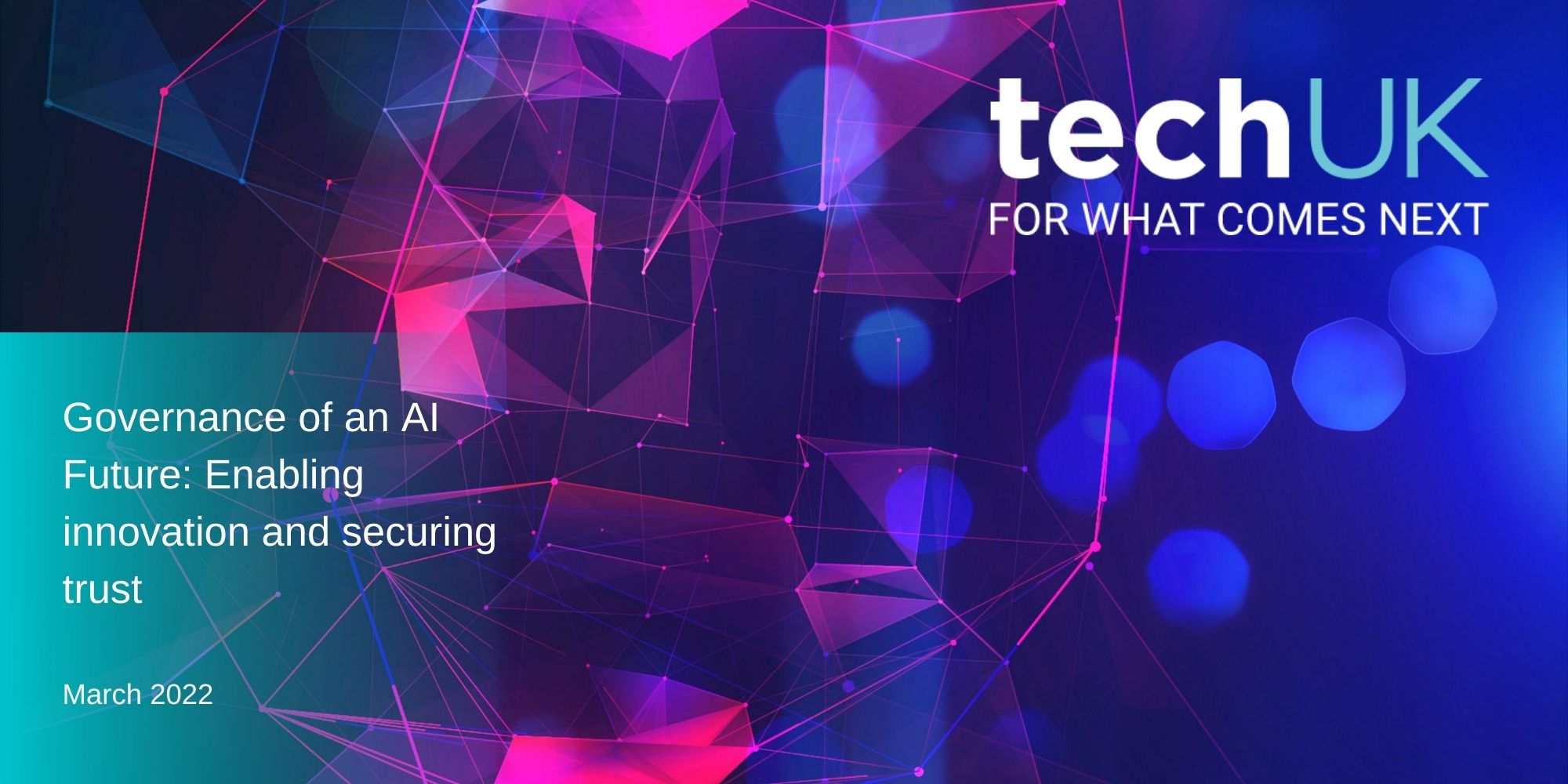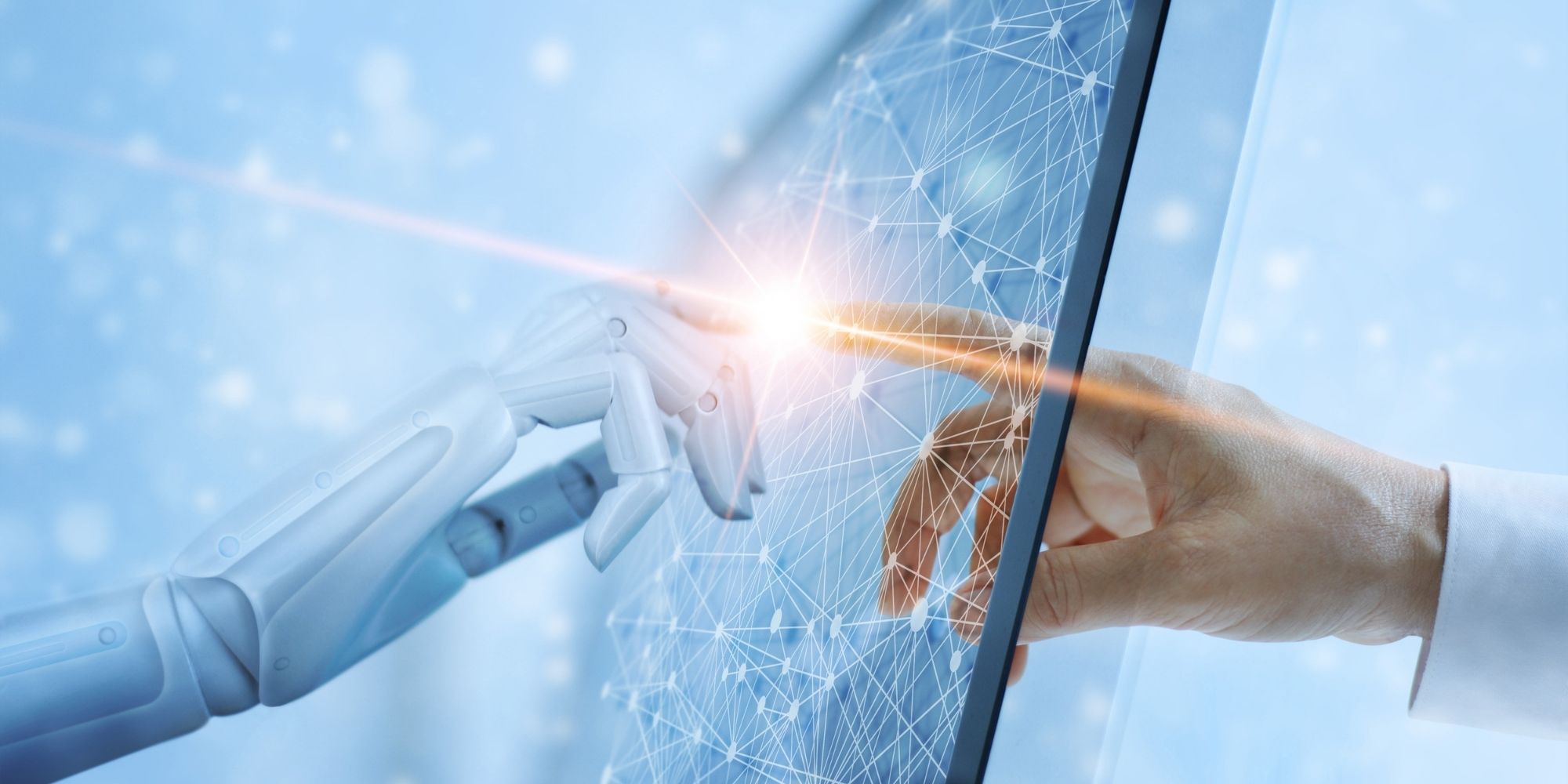The 'AI and the Future of Work in Northern Ireland' report was commissioned by Matrix, on behalf of the Department for [...]
Scoping Exercise for a Global AI Ethics and Safety Centre in Northern Ireland
Debra.Castles2025-02-10T11:43:05+00:00This study details how Northern Ireland’s thriving knowledge-based economy and its successful companies in the AI Sector along with expertise [...]
Digital technology in freight
Stephen Herdman2023-02-28T09:37:22+00:00This POSTnote reviews the digital technologies that support freight transport, considering the benefits and challenges associated with their use.
Automation in Military Operations
Stephen Herdman2022-10-10T10:20:54+01:00Automation in Military Operations Advances in robotics and digital technologies, such as artificial intelligence (AI), are enabling greater levels of [...]
Regional and National Ecosystems: Untapped Potential
Stephen Herdman2022-04-05T12:08:23+01:00The key to a successful tech ecosystem is critical mass in terms of access to talent, advice and investment. Local authorities may hold the key to unlocking some of this potential and this report contains numerous pragmatic suggestions for doing so.
The AI Index Report 2022: Measuring trends in Artificial Intelligence
Stephen Herdman2022-03-31T15:08:01+01:00The AI Index is an independent initiative at the Stanford Institute for Human-Centred Artificial Intelligence (HAI), led by the AI Index Steering Committee, an interdisciplinary group of experts from across academia and industry.
Governance for an AI future
Stephen Herdman2022-03-30T13:45:17+01:00In collaboration with its members, techUK has summarised four top priorities for a successful AI governance regime in the UK.
Intelligent Automation in Central Government
Stephen Herdman2022-03-02T14:45:00+00:00Intelligent Automation in Central Government techUK is the trade association representing the UK tech industry. In this report, Intelligent Automation [...]
State of AI Report 2021
Stephen Herdman2022-03-02T14:45:49+00:00Now in its fourth year, the State of AI Report 2021 is reviewed by AI practitioners in industry and research, and features invited contributions from a range of well-known and up-and-coming companies and research groups.
Interpretable machine learning
Stephen Herdman2022-03-02T14:46:06+00:00Interpretable machine learning Modern machine learning (ML) systems are increasingly being used to inform decision making in a variety of applications. However, for some types [...]
AI and healthcare
Stephen Herdman2021-10-22T14:01:38+01:00This POSTnote gives an overview of these uses, and their potential impacts on the cost and quality of healthcare, and on the workforce.
National AI Strategy
Stephen Herdman2021-09-22T13:53:31+01:00National AI Strategy The UK Government has today launched its first National AI Strategy. The aim of this Strategy is set [...]
Northern Ireland response to the AI Council AI Roadmap
Stephen Herdman2021-04-02T13:24:21+01:00Northern Ireland response to the AI Council AI Roadmap The Northern Ireland Innovation Stakeholder Group has submitted a Northern Ireland [...]
The AI Index Report Measuring trends in Artificial Intelligence
Stephen Herdman2021-03-03T16:05:49+00:00The AI Index Report tracks, collates, distils, and visualises data related to artificial intelligence. Its mission is to provide unbiased, rigorously vetted, and globally sourced data for policymakers, researchers, executives, journalists, and the general public to develop intuitions about the complex field of AI.
Evaluation of sector opportunities for Artificial Intelligence in Northern Ireland
Stephen Herdman2021-02-02T09:08:13+00:00This report brings together the findings of a sectoral foresight study of current and future opportunities of Artificial Intelligence (AI) in Northern Ireland (NI). It was commissioned by Matrix to inform the AI Competence Centre (AICC) business case.
AI Roadmap
Stephen Herdman2021-01-31T17:21:56+00:00An independent report, carried out by the AI Council, providing recommendations to help the government's strategic direction on AI.
AI review: Transforming our world with AI
Stephen Herdman2021-01-31T17:12:36+00:00This UKRI AI review ’Transforming our world with AI’ sets out UKRI’s view of the opportunities for research and innovation in AI – artificial intelligence – in the UK.
Innovation, Sustainability & the Future of Healthcare
Stephen Herdman2021-01-31T16:58:38+00:00The studies included in this report show that the integration of Artificial Intelligence (AI) technologies in the European healthcare setting presents a series of unique challenges that will require large, collaborative and transparent efforts crossing boundaries of profession and geography.
Global AI Talent Report 2020
Stephen Herdman2020-12-03T16:35:25+00:00Taking AI from research to real-world impact is a long value chain that depends on a range of skill sets and experience. It is common to see people who can, and do, fill multiple roles as some of the rarer skills are in need across the value chain. Even so, this report's authors think it is useful to categorize and explore these roles separately to better understand what it takes to build and run AI solutions and what accessibility to that talent looks like.
Rethinking AI talent strategy as automated machine learning comes of age
Stephen Herdman2020-08-19T13:48:56+01:00Do companies still need to hire a large contingent of data scientists to build machine learning models or can AutoML reduce the demand for this elusive talent?
Innovation Brokerage – Enabling collaborations through emerging digital tech
Stephen Herdman2020-02-05T09:35:09+00:00This report examines the phenomenon of ‘digital innovation brokerage’ that aims to connect ideas, people, organisations, and communities through digital technologies.
Lawtech: a comparative analysis of legal technology in the UK and in other jurisdictions
Stephen Herdman2019-12-30T12:07:44+00:00A comparative analysis of public, private and third sector accelerators to lawtech innovation and adoption in the UK and in other jurisdictions. This study is based on data available up to August 2019.
Agricultural Robotics: The Future of Robotic Agriculture
Stephen Herdman2019-09-02T15:42:52+01:00Agricultural Robotics: The Future of Robotic Agriculture The recent commitment of a £90million investment by the government (Transforming Food Production [...]
Gender Diversity in AI Research
Stephen Herdman2019-08-21T17:25:42+01:00Lack of gender diversity in the Artificial Intelligence (AI) workforce is raising growing concerns, but the evidence base about this problem has until now been based on statistics about the workforce of large technology companies or submissions to a small number of prestigious conferences.
Regulation for the Fourth Industrial Revolution
Stephen Herdman2019-08-08T20:12:52+01:00This white paper sets out plans to transform the UK’s regulatory system to support innovation while protecting citizens and the environment.
Future of Mobility
Stephen Herdman2019-08-08T19:34:42+01:00This report looks out to 2040. It looks at the whole transport system – considering the users and goods. It considers new opportunities and the implications of current trends. It builds four plausible future worlds to help decision makers think about the future.
Artificial Intelligence Research in Northern Ireland
Stephen Herdman2019-08-08T14:30:33+01:00This Matrix report suggests that the right components are in place to establish an Artificial Intelligence Centre of Excellence in Northern Ireland. Working with The Alan Turing Institute, the UK’s National Institute for Data Science and Artificial Intelligence, Matrix commissioned this report on Northern Ireland’s AI capabilities and the case for the establishment of a new AI Centre of Excellence here.
Building Innovation Superclusters
Stephen Herdman2019-08-08T14:32:33+01:00This report explores what Innovation Superclusters are, how they are formed, and how countries can get started building one.
The Four Futures of Work
Stephen Herdman2019-08-08T19:57:31+01:00The RSA’s Future Work Centre has published research that models four ‘futures of work’ by 2035 - and shows how politicians may not be up to speed on what’s going on.
Data science, artificial intelligence and the futures of work
Stephen Herdman2019-08-08T14:40:53+01:00This document presents a review of existing literature on the future of work. This review has been commissioned by The Alan Turing Institute to inform the Turing research strategy aiming to further data science and artificial intelligence (AI) research to address real-world problems.
The Future of Jobs 2018
Stephen Herdman2019-08-08T14:42:53+01:00Workforce transformations are no longer an aspect of the distant future. As shown in the five-year outlook of this report, these transformations are a feature of today’s workplaces and people’s current livelihoods and are set to continue in the near term.
AI Now 2018 Report
Stephen Herdman2019-08-08T21:53:27+01:00Building on the inaugural 2016 report, The AI Now 2018 Report addresses the most recent scholarly literature in order to raise critical social questions that will shape our present and near future.
Machine learning: the power and promise of computers that learn by example
Stephen Herdman2019-08-08T16:15:49+01:00What is the potential of machine learning over the next 5-10 years? And how can we develop this technology in a way that benefits everyone? The Royal Society’s machine learning project has been investigating these questions, and this report sets out the actions needed to maintain the UK’s role in advancing this technology while ensuring careful stewardship of its development.
Artificial Intelligence and Robotics and Their Impact on the Workplace
Stephen Herdman2019-08-08T16:19:00+01:00Artificial intelligence (AI) will have a fundamental impact on the global labour market in the next few years. By way of some examples, the authors show how AI will change the world of work fundamentally. In addition to companies, employees, lawyers and society, educational systems and legislators are also facing the task of meeting the new challenges that result from constantly advancing technology.
































